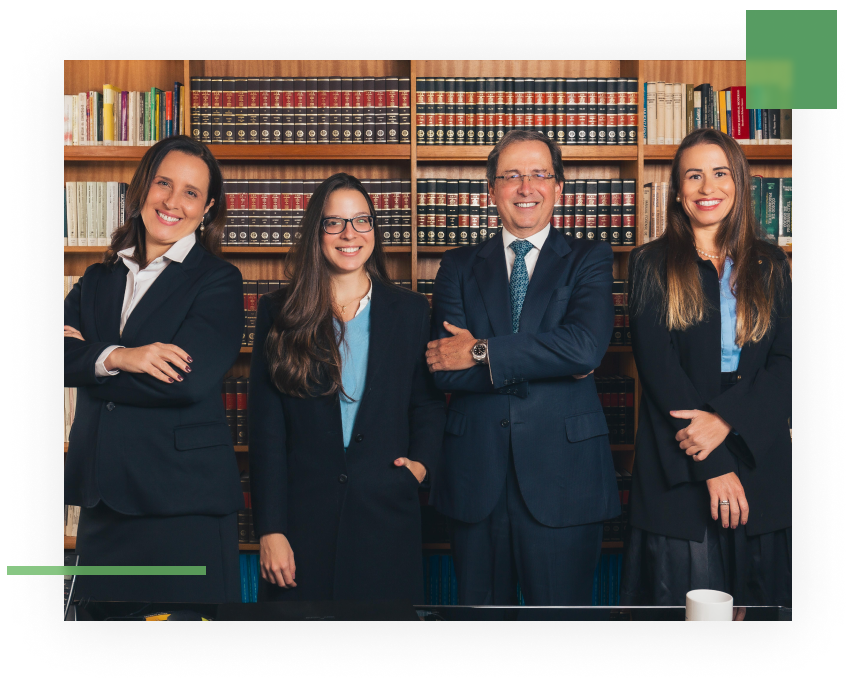araripe@araripe.com.br | +55 (24) 2103-2200
ARARIPE is a law firm with an excellent reputation in defending Intellectual Property rights, both judicially and administratively. We offer a differential advantage to our clients which allows them to stand out in their market segment.

Our business aim is to provide legal advice in both administrative and judicial contexts. We are focused on achieving the best results for clients’ demands, meeting them efficiently and competitively.
Access the main articles and news written by ARARIPE’s lawyers and engineers, based on the demands and interests of our clients.

In the European Union (EU), slogans can be registered as word marks, as long as they are distinctive and capable of identifying a company’s goods or services. Protection follows Regulation (EU) 2017/1001, which establishes the rules for registering trademarks in the EU.
In the United States, registering a slogan as a trademark with the United States Patent and Trademark Office (USPTO) is the main form of protection. With registration, the company acquires the exclusive right to use the slogan in relation to the goods or services for which it has been registered.
Therefore, those wishing to protect a slogan or advertising expression should carefully consider the forms of protection available and choose the one that best suits their interests.
If you have any questions or would like to understand the best forms and how the process of protecting your business’s slogan works, please contact one of our specialist lawyers.
Conclusion
Those wishing to protect a slogan or advertising expression should carefully consider the forms of protection available and choose the one that best suits their interests.

A crucial step for protecting slogans is to establish its precedence, to avoid disputes over its creation date. Therefore, the following strategies can be adopted:
In addition to these options, if the slogan is original and creative, and is part of a larger work, such as an advertising campaign, it can be protected as an intellectual work by the Copyright Office of the Brazilian National Library.
Although the registration of a slogan only as a means of advertising is not permitted by the current Brazilian industrial property legislation and, in spite of slogans already being protected by the institute of unfair competition, according to articles 195 and 209 of the Brazilian Industrial Property Law (LPI), in a recent event promoted by the agency, it was announced that it will be possible, soon, to register slogans with a certain degree of originality as trademarks. This registration will make it easier to prove authorship and will become an important instrument to establish its creation date.
Wish to know how to protect your slogan internationally? Click in the bio link to read our article about the matter or contact one of our specialized attorneys.
https://www.araripe.com.br/2024/10/08/como-proteger-um-slogan-ou-expressao-de-propaganda/

Have you ever thought about protecting your company slogan? That phrase that you love so much and that represents your brand? Slogans such as “If it’s Bayer, it’s good”, “Just do it” and “Red Bull gives you wings” are directly associated with the Bayer, Nike and Red Bull brands, respectively. These examples of slogans are used by companies to attract the public’s attention, creating a strong connection between the phrase and the brand.
Article 73 of the old Brazilian Industrial Property Code, Law n. 5.772, provided for the protection of advertising expressions or signs. However, with the new Brazilian Industrial Property Law (LPI), article 124, item VII, the registration of a “sign or expression used only as a means of advertising” as a trademark is prohibited.
This change in legislation stems from the understanding that slogans, due to their generic nature and predominantly promotional function, use common words and expressions, which makes it difficult to distinguish between trademarks. They argue that this goes against the purpose of trademark registration, which is to uniquely identify a company. Furthermore, exclusivity over slogans could limit creativity and free competition in the market, since the main purpose of a slogan is to promote a product or service, not to identify a company.
Protection against unfair competition is fundamental when it comes to advertising slogans. Unfair competition is any practice that lawfully harms the reputation or business of a competitor or creates confusion in the market. For this reason, slogans are protected by the institute of unfair competition, according to articles 195 and 209 of the LPI.
Although it is not currently possible to register a slogan as a trademark before the Brazilian Patent and Trademark Office (BPTO), at a recent event organized by the agency, it was announced that it will soon be possible to register slogans with a certain degree of originality. This registration will make it easier to prove authorship and will become an important tool for establishing the date of creation. Currently, there are a few ways to protect slogans. One is to register the slogan before the Brazilian National Library as part of an advertising piece.
Wish to know more about protecting your advertising expression or slogan? Contact one of our lawyers and make an appointment.
Avenida Ipiranga, 668
25610-150 Centro
Petrópolis RJ Brasil
Tel. +55 (24) 2103-2200
Fax +55 (24) 2103-2201
Rua da Assembléia, 10 Gr. 3710
20011-901 Centro
Rio de Janeiro RJ Brasil
Tel. +55 (21) 3923-5158
Alameda Santos, 200 CJ.71
01418-000 Cerqueira César
São Paulo SP Brasil
Tel. +55 (11) 3263-0087
Todos os direitos reservados @ Araripe
CNPJ: 00.000.0000/00